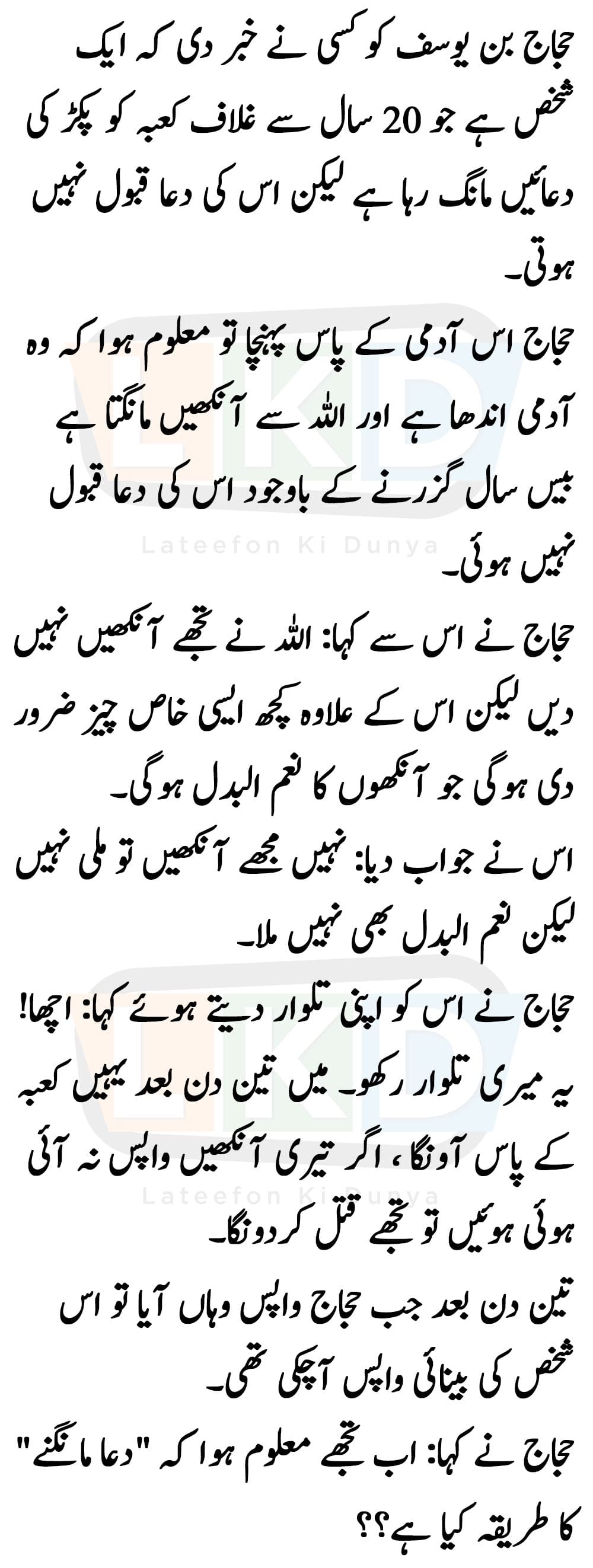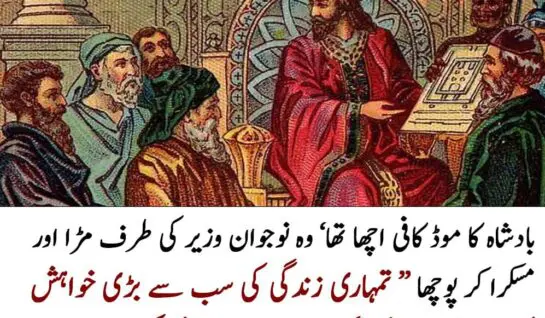Miraculous Transformations: Stories of Faith and Prayer
In the realm of divine encounters, there exists a tale of a man named Hajjaj bin Yusuf who was informed about an individual fervently praying for 20 years, clutching the cover of the Kaaba, yet finding no acceptance for his supplications. When Hajjaj approached this man, he discovered that the man was blind, yet he continued to beseech Allah with unwavering faith.
READ IN URDU BELOW

Despite two decades passing without the restoration of his sight, the blind man remained steadfast in his prayers. Hajjaj, intrigued by the situation, remarked that Allah might not have granted him eyesight, but there must be something unique that compensates for the lack of vision. To this, the blind man replied that although he didn’t regain his eyesight, he hadn’t received any extraordinary compensations either.
In a moment of determination, Hajjaj handed his sword to the blind man and declared, “Hold onto my sword. I will return here in three days. If your sight is not restored by then, I will end your life.”
Three days later, when Hajjaj returned, he found the blind man’s vision miraculously restored. Hajjaj, astounded by the transformation, asked him about the secret behind his newfound sight. The blind man revealed that he now understood the proper way to pray – a lesson learned through the unique experience.
Another narrative unfolds, narrating the story of a friend diagnosed with cancer. Facing financial constraints for treatment, the friend was approached by someone who suggested seeking help through night prayers (Tahajjud). Despite not knowing how to ask for help, the friend earnestly prayed during Tahajjud. Surprisingly, within a few days, the cancer vanished, leaving the hospital staff astonished at the sudden recovery.
These stories, though extraordinary, emphasize the power of prayer and faith. The blind man’s persistence and the cancer survivor’s unwavering trust in Allah showcase that what may seem impossible for humans is entirely possible for the Almighty. The Quranic command “Be, and it is” exemplifies the profound impact of divine intervention.
Switching gears, let’s explore the distinction between obligatory prayers (Fard Salah) and Tahajjud prayers. In Fard Salah, the call to prayer (Adhan) is announced by a human, and it is obligatory for everyone to hear it. However, in Tahajjud, Allah Himself invites believers to pray, and only a fortunate few respond to this divine call.
Furthermore, Fard Salah is a collective obligation observed by all Muslims, while Tahajjud is a more personal and voluntary act of worship. In Fard Salah, the call is “Haya ‘ala al-Salah” (Come to prayer), drawing attention to the obligation of congregational prayer. In contrast, Tahajjud’s call is a unique plea: “Is there anyone seeking forgiveness whom I can forgive?”
The differentiation lies not only in the call but also in the nature of the prayer. Fard Salah is recited by all, whereas Tahajjud is performed by those specially chosen by Allah – a select group of His devoted servants.
In conclusion, these narratives and reflections highlight the profound impact of prayer and the miracles that can unfold through unwavering faith. The distinction between Fard Salah and Tahajjud underscores the personal connection that believers can cultivate with Allah through voluntary acts of worship. The essence of these stories lies in the realization that what may seem impossible for humans is well within the realm of possibilities for the Almighty.



